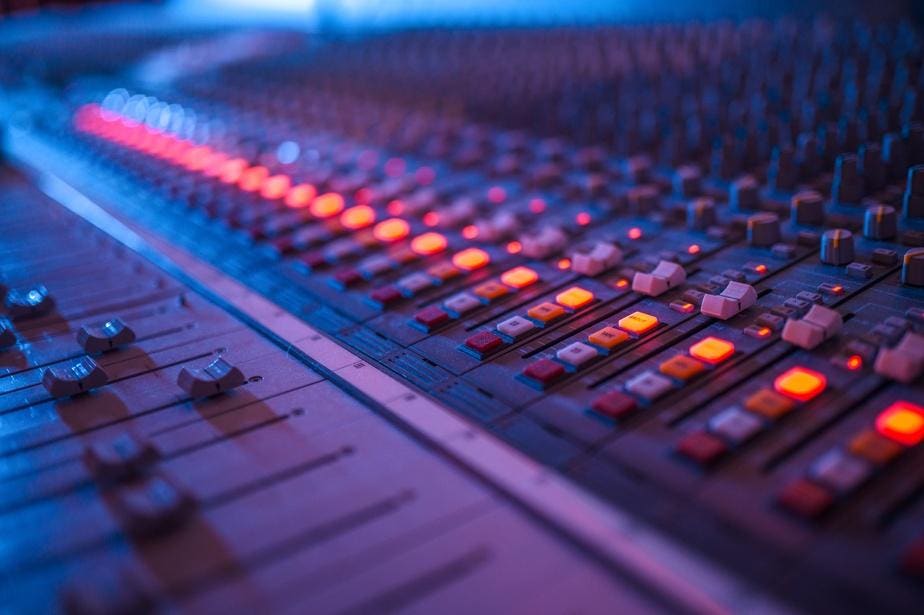CEO at FG Entertainment Network (FGEN), promoting Vietnamese cultural and commercial brands worldwide.
Vietnam’s music industry is a cultural tapestry with a rich array of genres and traditions. But as we venture deeper into the 21st Century, the question arises: How can this burgeoning industry harness modern technology to compete on the global stage? As the CEO of an entertainment company promoting Vietnamese cultural brands, this is something I’ve thought about for a long time, and I believe the answer lies at the intersection of artificial intelligence (AI) and innovative thinking.
Vietnamese music icons like Sơn Tùng, Hoang Thuy Linh, Đen Vâu, and artists of the SpaceSpeakers group have captivated millions domestically, yet the global stage remains largely uncharted.
In this article, I’ll dive into how AI-infused melodies, visionary strategies and insights can propel Vietnamese entertainment to the international level, setting the stage for cultural resonance and global recognition.
The Harmonization Of AI And Music
Imagine an upcoming Vietnamese artist struggling to perfect their latest song due to limited resources. Automated mastering services, built on complex AI algorithms, act as silent partners. They can polish and fine-tune the music, delivering sound quality that appeals to Vietnamese ears and meets industry standards worldwide.
The role of AI does not stop at mastery. It extends to the very source of a musical idea, the composition itself. Today’s AI can analyze hundreds of musical genres, moods and tempos to create compositions that artists can fine-tune. Emerging artists can leverage this power to blend traditional Vietnamese elements with global musical styles, providing a unique cross-cultural auditory experience.
Taking Targeted Steps With Data Analytics
In the realm of music promotion, crafting a perfectly composed and mastered track is just the first step. AI-powered data analytics can become the guiding light to ensure it reaches the right ears. Vietnamese labels can use AI to sift through extensive data, gaining profound insights into their audience’s preferences, both within the country and globally. Does a specific region lean toward traditional Vietnamese styles or more contemporary genres? These insights could help direct promotional campaigns that resonate with the right audience, whether in Hanoi or New York.
AI can enhance music recommendation systems, tailoring playlists and content to suit individual listener preferences worldwide. This personalization not only deepens listener engagement but also widens the exposure of Vietnamese music, transcending mainstream hits.
Furthermore, AI-driven content analysis could identify global trends and cultural subtleties, enabling Vietnamese artists to create music that resonates with diverse international audiences.
Additionally, AI-powered language translation and sentiment analysis facilitate the localization of lyrics and promotional materials, breaking language barriers and globalizing Vietnamese music. AI serves as the conduit propelling Vietnam’s rich musical heritage across borders, fostering global appreciation for its unique melodies and traditions.
Real-Time Adaptability And Global Footprints
Imagine a Vietnamese band gracing a global stage, their performance enhanced by cutting-edge technology. Wearables and AI tools track real-time audience reactions, providing invaluable insights for in-the-moment adjustments to the performance and setlist. As the band performs in Brazil, the AI registers a positive response to a faster tempo, energizing the crowd. In contrast, the audience in Japan leans toward a melodic slowdown, favoring a more contemplative atmosphere. With AI’s guidance, the performers seamlessly adapt, ensuring that each international concert is uniquely tailored to its audience’s preferences. This dynamic fusion of music and AI transcends cultural boundaries, creating unforgettable experiences for fans worldwide.
Training Global Talent Generations
In the training process, AI and VR can offer unparalleled advantages for singers and performers aiming for global stardom. AI can personalize training modules based on the artist’s vocal range, performance style and emotional expression, providing feedback that traditionally requires multiple human experts.
Meanwhile, VR can simulate various global stage environments and audiences, allowing performers to practice and adapt to different cultural expectations and atmospheres. This fusion of technology in the training phase not only refines skills but also builds a global performance mindset, which is crucial for Vietnamese artists aiming to resonate with an international audience.
Engaging With A Global Fanbase
Vietnamese artists can potentially utilize AI as a powerful tool for building and maintaining connections with their global fanbase. AI-powered chatbots and virtual assistants can serve as round-the-clock ambassadors, engaging with fans across different time zones, answering inquiries, and fostering a sense of continuous interaction.
AI can also personalize content recommendations, ensuring that fans worldwide receive music, updates and experiences tailored to their preferences, which deepens their emotional attachment to the artist.
Additionally, AI-driven sentiment analysis can help artists gauge fan reactions to performances and releases, enabling them to adapt and deliver content that resonates on a global scale. Through AI, Vietnamese artists can transcend geographical boundaries, creating lasting and meaningful relationships with fans around the world, ultimately strengthening their presence in the international music scene.
As a transformative force, AI offers the music industry a competitive edge like never before—by enhancing everything from talent training to global audience targeting. Whether you’re an artist, producer or even a listener, the integration of AI into the music landscape is a melody of progress you’ll want to hear.
Forbes Business Development Council is an invitation-only community for sales and biz dev executives. Do I qualify?





